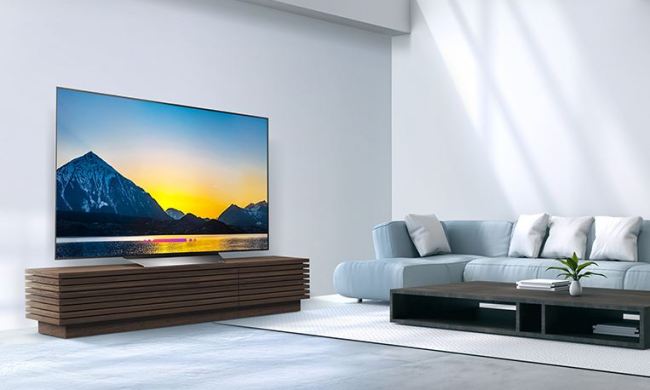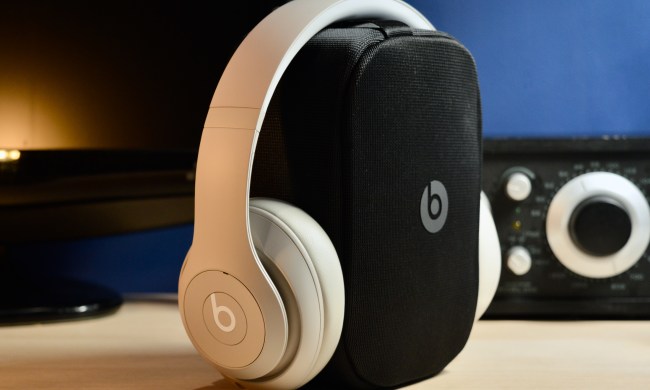Most of us aren’t worried about buying a TV right now. As the coronavirus continues to wreak havoc on every facet of our daily lives, there’s a far greater emphasis on buying the essentials, like food or toilet paper, than there is on upgrading a home theater setup. The coronavirus pandemic is a truly unprecedented event, as evidenced by Amazon’s decision to prioritize only the most essential products in an effort to meet demand that’s overwhelming its warehouses and delivery drivers.
There will be a time, however, when we have the luxury of thinking about our next gadget. When we no longer have to focus on emergency preparedness, and can return to the bliss of TV and speaker shopping — and the home theater industry will be waiting. According to industry insiders, most audio and video companies are well-prepared to weather this storm.
The experts I spoke with were clear. You won’t have to worry about availability issues or price hikes for home theater gear. Many major TV manufacturers, from Chinese company TCL to South Korean corporation LG, have facilities based in Asian countries where coronavirus outbreaks have occurred. Yet these brands have the infrastructure in place to make sure the industry doesn’t falter.
Both Samsung and LG recently announced their 2020 lineup of TVs, with no indication that models will be delayed or postponed.
A robust supply chain
According to Brian Markwalter, the senior vice president of research and standards for the Consumer Technology Association, there will be only sporadic shortages of products in the next month or two. The impact likely won’t be drastic, and it’s going to take time for the effects to trickle down to the consumer.
The reason, Markwalter said, is the A/V segment’s robust supply chain. Most companies have diversified the supply chain, which lessens the impact of unforeseen circumstances and natural disasters, like the coronavirus.
“The supply side seems to be getting back on its feet,” Markwalter said. “There’s so much uncertainty, but people feel like if we can get it contained, there will be no major shortages.”
Both Samsung and LG recently announced their 2020 TV lineups, with no indication that models will be delayed or postponed. Samsung is already shipping most of its new models, and LG said it would start making its displays available later this month.

Products on hand
The same goes for Premier Mounts, a company based in Corona, California, that sells mounting solutions for televisions and other high-end home theater equipment. Brandon Breznick, an assistant communications manager for the company, said Premier Mounts has manufacturing facilities in both Taiwan and China, two areas affected by the pandemic. But Premier Mounts makes it a priority to keep a healthy stock of products on hand, Breznick told Digital Trends.
That, combined with a manufacturing plant located in Corona, should allow for the company to weather this situation somewhat unscathed.
That’s not to say the industry won’t slow down, he said. If demand far exceeds the supply that Premier Mounts currently has, it may take longer to replenish that stock.
“A lot of our line is dedicated to custom mount work,” Breznick said. “We can kind of combat demand if we get it out on a lot smaller scale. But if we have multiple jobs running, that might spread us a little thin.”
We know that TVs are a favored product. People are always shopping for them.
A need for entertainment
Long-term, Markwalter doesn’t see significant changes in the forecast for A/V shoppers. Things are bleak right now with sports, movie premieres, and late-night shows halted for the foreseeable future. But that doesn’t change the fact people need to be entertained, and A/V products are an integral part of that.
“We know that TVs are a favored product,” Markwalter said. “People are always shopping for them. We see that there will be a continued demand for these products. I don’t know if that will go away.”
Markwalter said you shouldn’t worry about buying at a certain time, or experiencing a spike in prices. The typical trajectory of the A/V market should continue, he said, with the annual Black Friday and Cyber Monday sales making the fourth quarter a prime time for sales.
“I don’t see anything that suggests people should shop differently for products,” Markwalter said. “The sales cycles will continue.”



